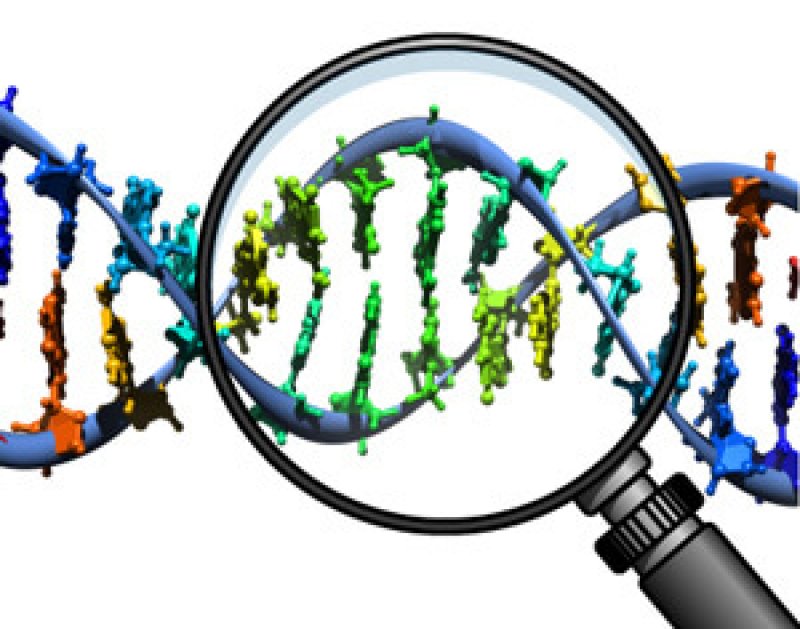In 2012, Atlas Logistics Group, a grocery distribution company, began having problems. Someone was pooping on the job in the middle of the warehouse.
But, instead of putting up a security camera, for instance, Atlas went for the silver bullet. They genetically tested the ‘specimens.’ Then, they asked two of their employees who’s work schedules coincided with the fecal incidents to provide DNA samples from a cheek swab.
The men, now victorious plaintiffs against their former employers, supplied the samples. At least one of them told the judge he feared for his job if he didn’t comply. Both were innocent. But their case will join just a handful of others to be prosecuted and set legal precedence of the U.S.
Judge Amy Totenberg ruled that Atlas violated the law when it asked it asked Jack Lowe and Dennis Reynolds to provide samples. Specifically, Atlas was out of line because of the Genetic Information Nondiscrimination Act, called GINA, which prevents an employer from requesting an employee’s genetic information.
GINA was passed to protect employees from employment or health insurance discrimination because of their genetic status. That is the bulk of the first part of the legislation. It wants to protect people from being denied health insurance not just from a pre-existing condition, but from the chance of developing a disease.
Atlas’ attorneys argued that GINA is only relevant when the genetic information applies to disease risk (and thus would affect health benefits). But Judge Totenberg disagreed, “[The] unambiguous language of GINA providing a broad definition of “genetic information,” which covers the information Atlas requested in this case.”
The defendent argued that because it didn’t seek to learn medical information from the tests but rather just the forensic data from their employees to match to the poop sample the law didn’t apply. Unfortunately for Atlas, GINA legislation just doesn’t see that that distiinction, unless you are prosecuting a crime or there are ‘exceptional’ circumstances. Because they took this on themselves, instead of going through the cops, they get no exception says Judge Totenberg. Here’s what the law says:
[GINA] prohibits, as an unlawful employment practice, an employer, employment agency, labor organization, or joint labor-management committee from requesting, requiring, or purchasing an employee’s genetic information, except for certain purposes, which include where: (1) such information is requested or required to comply with certification requirements of family and medical leave laws; (2) the information involved is to be used for genetic monitoring of the biological effects of toxic substances in the workplace; and (3) the employer conducts DNA analysis for law enforcement purposes as a forensic laboratory or for purposes of human remains identification.
Pooping in the hallway doesn’t count as an exception Judge Totenberg said.
Beyond this legal case, it seems admittedly strange that Atlas jumped to the genetic testing as a way to solve the defecation problems in the first place. Although one might assume DNA testing would be an expensive option, DNA testing is available in the $100 range. That’s much cheaper than many security camera systems.
A related case, illustrates how close the employment line can cut. Gregory Lamica, a server at a Syracuse NY based Chili’s restaurant was accused by a customer of spitting in a drink. The customer reported the incident the cops who had a DNA test done on the sample. Lamica was found to be the culprit. The cops left him with a $125 fine. But now Ken Yerdon, the customer has pressed civil charges seeking damages for an unknown amount that includes cost of HIV and Hepatitis testing, despite the fact that HIV cannot be passed through saliva contact according to the Centers for Disease Control. But since Chili’s itself did not request the sample from Lamica, GINA doesn’t apply.
The Lowe-Reynolds case is one of only a handful of situations to test GINA so far according to Gina Kolata of the New York Times. It will be interesting to see what happens as cases become more thoughtful.
Meredith Knight is a contributor to the Human Genetics section at the Genetic Literacy Project. She is a freelance science and health writer based in Austin, Texas. Follow her on twitter: @meremereknight
Additional Resources:
- Canada seeks to keep genetic data private from health insurers, Genetic Literacy Project
- Behavioral genetics enters the courtroom, Genetic Literacy Project
- GINA’s sixth birthday: Does legislation protecting our genetic information mean anything? Genetic Literacy Project































